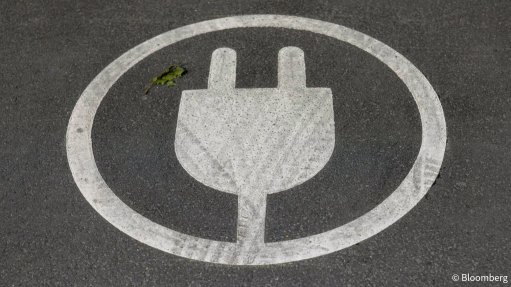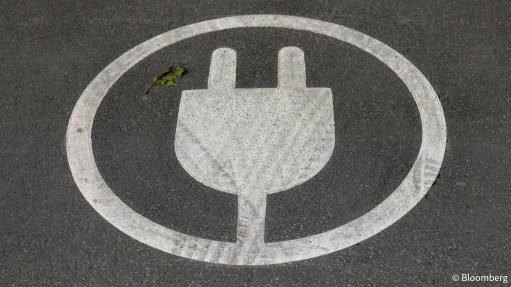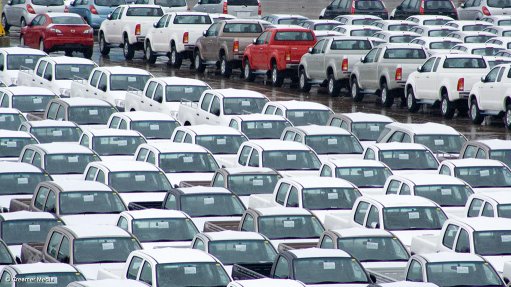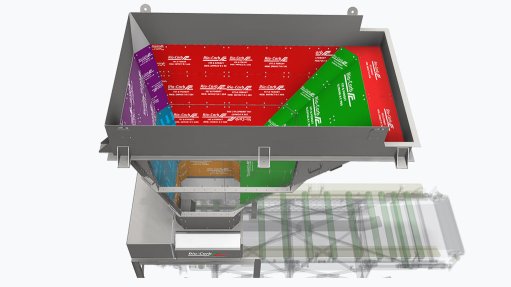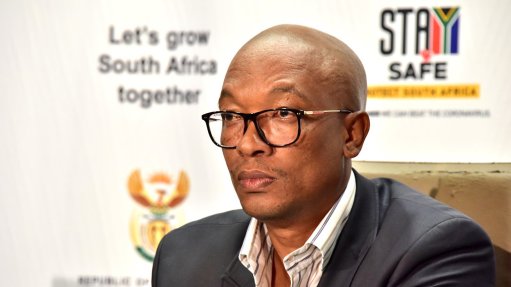Driving Africa’s transition to a blue economy: actionable strategies for tackling plastic waste
This article has been supplied and will be available for a limited time only on this website.
By: Janine Osborne - CEO of Sustainable Seas Trust
The world is grappling with a pervasive environmental crisis: plastic waste and pollution.
We may consume less plastic per capita than the rest of the world, but Africa is still the second-most polluted continent in the world. Added to this, most of our waste is mismanaged, with a significant portion ending up in landfills, illegal dumpsites, as well as our rivers and oceans.
With most landfills in Africa being simply uncontrolled dumpsites, an average waste collection rate of just 55%, and a population set to double by 2050, we are in serious trouble as a continent if we do not implement urgent and clear local, regional and national action plans to support sustainable waste management practices.
The plastic pollution crisis in Africa is more nuanced than those faced by other regions, primarily because of the continent’s rapid development, population growth, and our diverse economic groups with varying needs and challenges. Large coastal countries like South Africa and Egypt face different waste management challenges compared to small island states like Mauritius or landlocked countries like Lesotho. We know that municipal solid waste collection services in most African countries are inadequate and, as our population continues to grow, waste generation is fast outpacing collection and management capacity.
The United Nations Environment Programme (UNEP) has spearheaded a global effort to address plastic pollution with the Global Plastic Treaty, which sets the framework for action plans that all signatory countries must submit to the Treaty’s appointment body. The response and involvement from African nations has been limited, primarily because of the complexity that is innate to the waste management and plastics sector.
The plastics issue is not really considered a priority for many impoverished communities, where meeting basic survival needs is a daily challenge.
As a response to our continent’s unique challenges, we have developed the Plastic-Free Seas: An Action-Focused Guide for Plastic Management in Africa guidebook. This comprehensive resource provides a clear framework and downloadable, editable templates to help our African partner nations draft specific plastic waste management action plans.
The guidebook recognises that not all African countries are the same, with templates designed to be adaptable, ensuring that each country can customise its plan to its specific economic and geographical context.
Through deep consultation with stakeholders from across the continent, we’ve aimed to ensure the voices and perspectives of those most affected by plastic pollution are reflected and the practical tools provided make sense within an African context. Showcasing the need for different approaches to tackling this global issue, it is a flexible and action-focused ‘how to’ that provides a structured approach to the cross-cutting issues of education, consumer behaviour change, fiscal incentives, and recycling markets.
Launching the guidebook to the global community at the UNEP’s fifth session of the Intergovernmental Negotiating Committee in South Korea, it’s imperative that South Africa offer its expertise on the matter in a forum where countries will gather to finalise the global agreement to end plastic pollution.
Harmonised regional action plans aligned with national strategies will allow neighbouring countries to share resources and solutions, create regional markets for recycled materials, and build effective extended producer responsibility schemes. National action plans must be tailored to reflect each country’s individual economic, societal and environmental circumstances, while city action plans will comprise the biggest lever of change. Prioritising investment in towns and cities to support sustainable waste management will yield the greatest return, as they are the most densely populated, thereby producing the bulk of a country’s plastic waste.
Solutions within these action plans must address the full lifecycle of plastics, from production to consumption to end-of-life disposal and recycling.
Supporting every step of the plastic value chain — including mining and refining of raw materials, design and manufacturing, packaging and shipping, retail, and the use, discarding and recycling of the product — through training and provision of adequate and appropriate resources, is an absolute imperative for reducing waste.
I believe that for Africa, an opportunity exists to not only address the plastic pollution crisis in a way that fulfils our obligations to the UNEP Global Plastics Treaty, but also to drive a transformative shift towards a more resource-efficient, resilient, equitable and inclusive blue economy. By drawing up decisive action plans now, we as Africans can leverage our current stage of development to chart a new path, one that turns sustainable plastic waste management and effective recycling into an engine of economic growth, societal transformation, income-generating opportunities, and environmental sustainability - for the benefit of our ocean and all who depend on it.
I believe a future free of plastic pollution is not a future free from plastic. I don’t believe that is possible or feasible, especially in Africa where many of our communities are simply living day-by-day to put food on the table for themselves and their families.
It is however a future where plastic is valued and, if it is produced, it is produced according to design principles that ensures that, when it is sent for recycling, it will be recycled into a new and useful product. It is a future where plastics are kept within the circular economy at its highest value and at the lowest cost to the consumer. It is a future where the people of Africa and her seas flourish together.
Comments
Announcements
What's On
Subscribe to improve your user experience...
Option 1 (equivalent of R125 a month):
Receive a weekly copy of Creamer Media's Engineering News & Mining Weekly magazine
(print copy for those in South Africa and e-magazine for those outside of South Africa)
Receive daily email newsletters
Access to full search results
Access archive of magazine back copies
Access to Projects in Progress
Access to ONE Research Report of your choice in PDF format
Option 2 (equivalent of R375 a month):
All benefits from Option 1
PLUS
Access to Creamer Media's Research Channel Africa for ALL Research Reports, in PDF format, on various industrial and mining sectors
including Electricity; Water; Energy Transition; Hydrogen; Roads, Rail and Ports; Coal; Gold; Platinum; Battery Metals; etc.
Already a subscriber?
Forgotten your password?
Receive weekly copy of Creamer Media's Engineering News & Mining Weekly magazine (print copy for those in South Africa and e-magazine for those outside of South Africa)
➕
Recieve daily email newsletters
➕
Access to full search results
➕
Access archive of magazine back copies
➕
Access to Projects in Progress
➕
Access to ONE Research Report of your choice in PDF format
RESEARCH CHANNEL AFRICA
R4500 (equivalent of R375 a month)
SUBSCRIBEAll benefits from Option 1
➕
Access to Creamer Media's Research Channel Africa for ALL Research Reports on various industrial and mining sectors, in PDF format, including on:
Electricity
➕
Water
➕
Energy Transition
➕
Hydrogen
➕
Roads, Rail and Ports
➕
Coal
➕
Gold
➕
Platinum
➕
Battery Metals
➕
etc.
Receive all benefits from Option 1 or Option 2 delivered to numerous people at your company
➕
Multiple User names and Passwords for simultaneous log-ins
➕
Intranet integration access to all in your organisation







